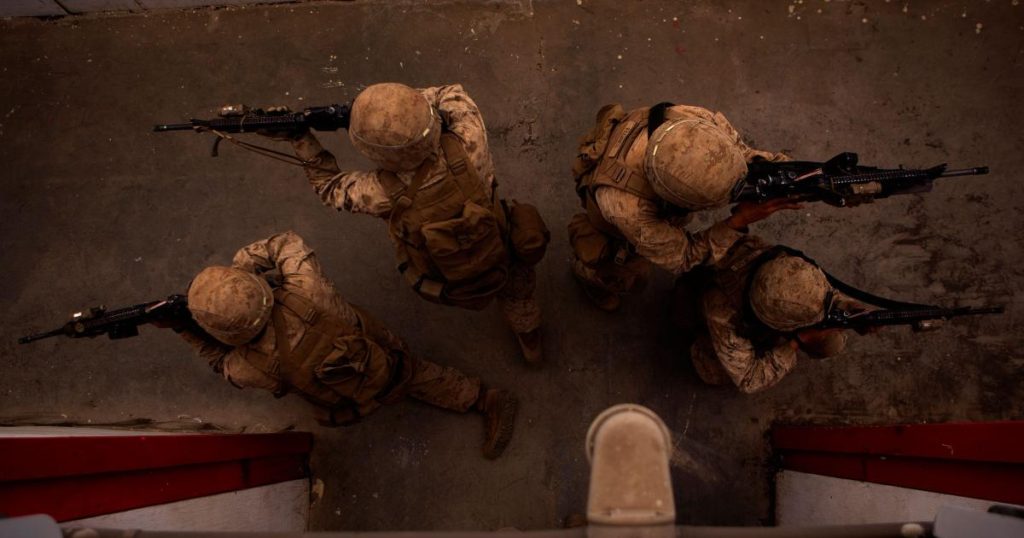Newspaper Article 12/06/2022
Pakistan’s defence is impregnable. This is not a hyperbolic statement, rather one that confirms on merit and a diligent track record of history. Yet why is Pakistan so insecure when it comes to fissures from home and abroad? Pestering political crisscross, economic dysfunction, religious radicalism, media bizarreness, policy confusion and last but not least, a mix of sleeping cells and their abettors in the corridors of power has unnerved Pakistan to the core. The enemy is within the ranks, and the external maneuvers are anything but a catalyst. The modus operandi is dissent, revulsion, propaganda, lawlessness and propagation of parochialism. The plot is to tear down the national fabric, weaken social cohesion and cement distrust in the body-politick.
This is, indeed, a hybrid warfare, and Pakistan’s socio-political lifeline is badly threatened. It goes on to pose survival threats to the very existence of the country. There is no recourse but to fight this 5th Generation warfare. The hybrid invasion is in the form of tech-savvy fingers from a gadget in your palm! And big international factors and organizations are behind it. They cannot be retaliated through artillery and nukes, rather through a well-orchestrated technological and intelligence combine, and that too in real time with a superior reflex. The tools of psychological encroachment are Twitter, Facebook, YouTube, Instagram, WhatsApp and as many social media ventures one can account for! This soft power literally overwhelms the conventional hardcore mediums, and this is where the enigma lies. It is the biggest challenge for Pakistan, and it has to be addressed in all sincerity and uprightness.
Let’s glance at its philosophical origin, and some of the relevant approaches before we go on to dilate as to how these hybrid incursions have impacted global realities – and what is Pakistan’s dilemma.
Sun Tzu, ancient Chinese military strategist in 544 BC, pronounced that “War is a moral contest. They are won in temples long before they are ever fought.” He was prophetic, indeed. But little did he know that his synopsis would not be limited to military generals on the warfront but the trajectory of technology and brainpower will become homely and all will be in it.
Today in a global population of seven billion, almost five billion souls have their say, and are influencing state-centrism like never before through social media. The pattern of warfare these days is apparently not to secure an adversary’s immediate defeat, but to bleed it down the timeline by exhausting synergies and ridiculing acumen. The objective is to attain political supremacy and not military, and that is done by making inroads in the enemy’s social terrain through brainwashing and invoking unrest. Technology tools and growing public dissent are tactfully maneuvered to command and control enemies’ national resources, and the masses are rendered a status of no less than Guinea Pigs.
To realize this, state and non-state actors use social media as a tool for hybrid warfare strategies as a psycho-political weapon. The target is to impact socio-politico-economic fault lines of a nation, and make it subservient. Spreading disinformation and ensuring that people start believing in fake news is the way to go – and Pakistan like many other countries is in it for quite many years.

The hybrid onslaught in the modern age was perfected in 2007 by Frank Hoffman, a US national security analyst, by saying it employs “political warfare and blends cyber warfare with other influencing methods such as fake news, diplomacy, lawfare and foreign electoral intervention”. The April 2022 regime change of Prime Minister Imran Khan in Pakistan is an apt referral at this point.
In fact, Hoffman had graduated his theory on William Nemeth, another American military analyst’s proposition in 2002. This was the time when 9/11 attacks on New York and Pentagon had changed the world at large, and the US was subsequently biting dust in Afghanistan at the hands of what they considered inferior ‘sub-agents of terror’ or popularly known as non-state actors.
The entire strategy was meant to achieve political objectives in the guise of criminal coherence and that too without making physical presence felt. The aerial carpet bombing of Tora Bora Mountains and hundreds of drone attacks in Afghanistan and Pakistan were all an outcome of technological superiority, and hybrid had nullified sovereignty of these two states to a naught.
As far as Pakistan is concerned its political economy is the turf to fight a hybrid war. Internal and external players are fully involved in weakening Pakistan, and the plum targets are, of course, the military, which is the custodian of the nuclear shield; and then the politicians, media, indigenous businesses, bureaucracy and the religious elite. They are arm-twisted in one way or the other in a mechanism that remains shrouded in mystery, and desired results attained.
The blessing is that the armed forces and the conscious nationalism among masses are two of the biggest bulwarks that have protected Pakistan to this day. This is why non-state actors are being proliferated and pumped with easy money to create a dent.
What are the fronts where Pakistan is locked in a pestering hybrid warfare? To count on the international front, the foremost is India and Kashmir. An utter fake campaign to project Pakistan as the safe haven for terrorism has been underway for at least four decades. The United States is in it too, and never leaves any stone unturned to squeeze the maximum out of Islamabad, and the ‘do more’ mantra is a salient feature of such a policy.
This is hybrid on the nerve-system of the country, and Pakistan must be credited for holding its ground on Kashmir, and tactfully dealing with Delhi and Washington as the latter duo goes on to foment a radical alliance of otherness in the region to corner China and penalize Pakistan. This is where the new Cold War begins, and Pakistan inadvertently will be part of camp politics, notwithstanding allegiance to an independent course of action.
It is current history that India used an orchestrated fake network to nail down Pakistan from Europe. The “EU DisInfo Lab” (an independent non-profit organization based in Brussels) was at work at the behest of Delhi to malign Pakistan and distort its international image. It was in vogue since 2005, using resurrected media, defunct think tanks, NGOs and even social media accounts of the dead! A report in December 2020 revealed that more than 750 fake media outlets and 550-plus domains were found covering 119 countries. This is anything but mother of all onslaughts, and Gobbles would prefer to be on his knees!
Discrediting CPEC and BRI by the United States is a stark example of hybridization, in an era when the world is increasingly moving towards interdependence. Europe despite being in a state of war with Russia is buying oil from Moscow and that too by paying in rubles. But when it comes to Pakistan, progressive developmental initiatives are put down under sanctions and a media warfare is launched. The campaign to scuttle Pakistan’s growing orientation with Russia under Imran Khan too is abject hybrid coercion. Likewise, the Iran-Pakistan-India gas pipeline worth $7.5 billion is another victim of bad Press.

The next is Afghanistan. Pakistan is in a twin-dimensional fix while dealing with the war-ravaged Southwest Asian state. It has serious concerns from a diverse range of militant outfits, many of whom are on the run from the Mideast, and have found their compatriots in Pakistan too. Media outbursts slandering the institutions of Pakistan, especially the armed forces, is a regular beat. This unfortunately cajoles support from the naïve populace in our tribal and settled areas, and the war to contest the non-state actors is both physical and on gadgets, alike. A worst dilemma of its kind that any country faces in the new era.
Subsequently, such an enigma travels into Balochistan, the former FATA region and, of course, Gilgit-Baltistan. The mushrooming of sleeping cells is a constant. Non-state actors and unscrupulous elements have encroached deep into the psyche, and most of them have disguised themselves in the cloak of politics be it ethnic, lingual or sectarian. The Baloch resistance movement and various groups that have taken up arms is the biggest hybrid challenge.
It goes without saying that state-centric stakeholders had often played foul, and indigenous politics wasn’t allowed to flourish. The army action by a civilian chief executive against Nawab Akbar Bugti in 1973 sowed the seeds of dissent, and consecutive administrations have merely furthered the gulf. It is worrisome that the theatre of CPEC, Gwadar, is the hotbed of unrest and rightly so as the locals are treated as aliens, and have not been taken on board in development and equal opportunities.
So is the dissent widespread in the desolate province, and this is where the latest and most sophisticated hybrid war is being fought. Apart from a complete brainwash of youth, the jaundiced institutional decorum has simply confirmed the sense of otherness. Political callousness and military highhandedness go hand in hand to worsen the situation.
To quote Sun Tzu again, “Know your enemy and know yourself. Then in a hundred fights you will never be at risk.” Pakistan is one of the most soft-bed for fomenting hybrid warfare in the region. That is so because there is a lack of national policy, and stakeholders look the other way round. From Karakoram ranges to the deserts of Makran, Pakistan is in need of a strategy to do away with dissent. Sixty-three per cent of the youth population are free to take their chorus through their gadgets. One cannot clamp down on technology, rather ways and means be devised to streamline them in positivity. That should be Pakistan’s hybrid rejoinder.
Note: This article appeared in Tribune, dated 12 June 2022.
Disclaimer: The views expressed in the article are of the author and do not necessarily represent Institute’s policy.

